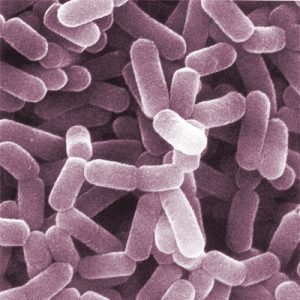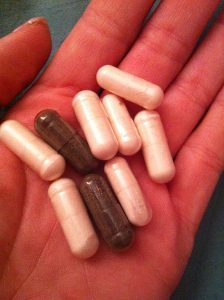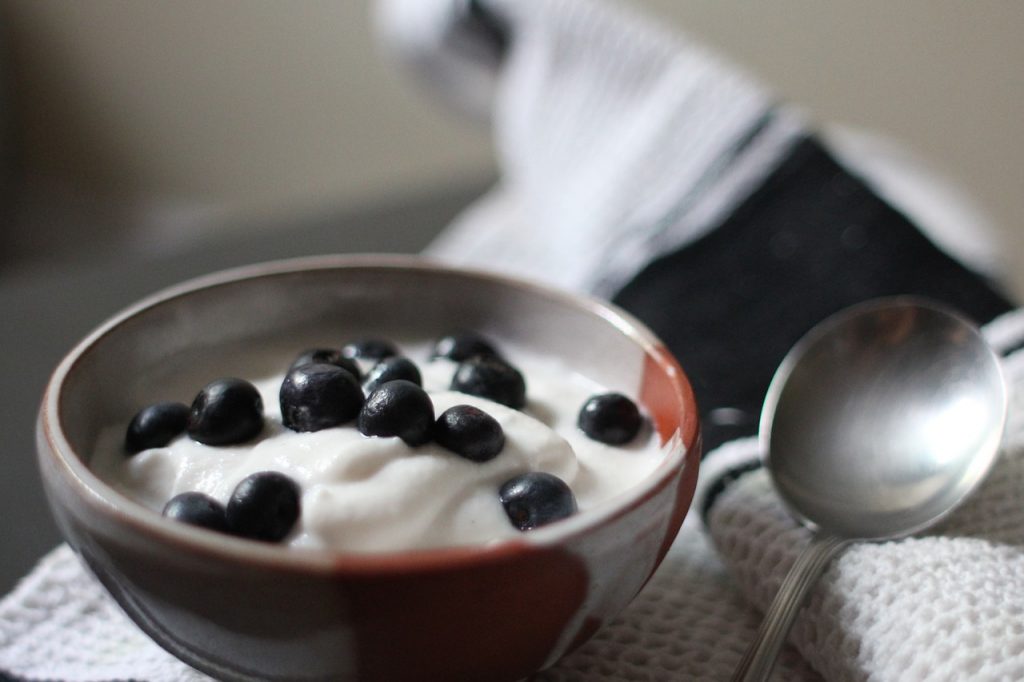Probiotic bacteria have a wide range of immunity benefits.

Probiotics are bacteria that can have a positive impact on your health. Probiotics seem to support healthy immune system function through:
- Stimulating immune function. Probiotics can stimulate immune cells and modulate cytokines.
- Protection from pathogens. Probiotics can compete with and kill off harmful bacteria and other pathogens.
- Enhancing the intestinal barrier. This cell layer protects the body from toxins and other harmful compounds, and its disruption plays a role in immune and inflammatory conditions.
Overview
Probiotics, also known as “good” bacteria, are microorganisms that can benefit your health. These bacteria are naturally present in the gut as part of a complex microbiota community that aids digestion, produces vitamins, and protects you from disease-causing microorganisms. Probiotics can also be found in a variety of fermented foods and are sold as dietary supplements.
Disruption of gut microbiota is now believed to play a key role in the development of gastrointestinal disorders. Furthermore, research indicates that probiotics also affect and improve other areas of your health such as immune function.
Although current findings on the immunity benefits of probiotics are conflicting, this might be explained by the fact that the individuals studied vary in their genetic background, diet, and gut microbiota composition, as well as the fact that different probiotic species and strains have different effects.
How Probiotics Might Help With Immunity
Supporting immune system function
Researchers propose that probiotics can enhance immune function via multiple mechanisms, including: competing with pathogens and releasing compounds that kill off harmful bacteria; promoting the survival and defensive function of the intestinal mucosal barrier, a layer of cells that lines the intestine; and affecting the immune system directly by stimulating immune cell activity and modulating levels of cytokines – protein molecules that play a key role in inflammation. 1 2
Probiotics Uses & Benefits for Immunity

The one thing to keep in mind, however, is that all probiotics don’t have the same effect because of personal genetic and gut microbiota differences, as well as differences between probiotic strains. In addition, current research suggests that probiotics provide little to no benefit to people who are already healthy, and likely have a well-balanced gut glora.4
Research
Animal & Petri Dish Research
Probiotics have been extensively researched as immune system modulators in animals and cell culture studies, suggesting benefits such as:
- Reduced inflammation. Probiotics have been shown to modulate levels of cytokines and chemokines, compounds that play a significant role in inflammation and inflammatory conditions such as colitis.5 6
- Improvement of allergies. Probiotics have been shown to reduce allergies in mice models of food, pollen, and other types of allergy.7 8
Human Research
Probiotics have been shown to help with immunity in multiple ways, including enhancing overall immune function and helping with specific conditions such as allergies, infections, and inflammatory illnesses.
Probiotics may enhance immunity in older adults
This study tested whether probiotics can enhance immunity in the elderly. Thirty older adults (age 63-84) took low-fat milk daily for 3 weeks, followed by milk with a low or standard dose of the probiotic B. lactis HN019 daily for 3 more weeks, and low-fat milk for another 3 weeks. After taking the probiotic, the participants had increased proportions of total, helper, and activated T lymphocyte and natural killer (NK) cells, in addition to enhanced activity of phagocyte and NK cells.
- The researchers concluded that “B. lactis HN019 could be an effective probiotic dietary supplement for enhancing some aspects of cellular immunity in the elderly.”9
Probiotics (L. reuteri) may protect from short-term illness
This randomized, double-blind, placebo-controlled study explored the efficacy of probiotics for reducing short-term illness. One hundred and eighty-one employees received placebo or an L. reuteri probiotic daily for 80 days. The L. reuteri group had fewer reports of sick leave (10.6% ves 26.4%) and lower frequency of sick days (0.4% vs 0.9%) than placebo. In addition, while 33% of placebo shift-workers were sick during the study, none in the L. reuteri group reported being sick.
- The researchers concluded that “…L. reuteri is effective to promote work-place healthiness.”10
The efficacy of probiotics in irritable bowel syndrome (IBS) was examined in a double blind, randomized, placebo-controlled study. Fifty-two people were given a probiotic mixture (including two strains of Lactobacillus acidophilus, Bifidobacterium lactis, and Bifidobacterium bifidum) or placebo daily for 8 weeks. Compared to placebo, the probiotic group had greater improvement in symptom severity, quality of life, days with pain, and bowel habits.
- The researchers concluded that “LAB4 multistrain probiotic supplement may benefit subjects with IBS.”11
Probiotics (Lactobacillus GG) may improve upper respiratory infections in children
This randomized, double-blind, placebo-controlled study tested whether probiotics can ward off digestive and respiratory tract infections in children. Two hundred and eighty-one children attending day care centers were given a placebo dairy drink or the same drink containing Lactobacillus GG (LGG) daily for 3 months. Children in the LGG group had lower risk of upper respiratory tract infections (URTIs) and URTIs lasting more than 3 days, along with fewer days with symptoms.
- The researchers concluded that “LGG administration can be recommended as a valid measure for decreasing the risk of upper respiratory tract infections in children attending day care centers.”12
Probiotics (Lactobacillus mixture) may help fight colds
This randomized, double-blind, placebo-controlled study, tested the effects of probiotics on the common cold infection. Two hundred and seventy-two adults were given a mixture of two Lactobacillus strains (Lactobacillus plantarum HEAL 9 and Lactobacillus paracasei 8700:2) or placebo daily for 12 weeks. The probiotics group had lower occurrence of 1 or more cold infections (55% versus 67% for placebo), fewer days with cold symptoms, and a lower symptom score.
- The researchers concluded that “…intake of the probiotic strains Lactobacillus plantarum HEAL 9 (DSM 15312) and Lactobacillus paracasei 8700:2 (DSM 13434) reduces the risk of acquiring common cold infections.”13
Probiotics may improve immune system function
This double-blind, randomized, placebo-controlled study looked at the immunity effects of two probiotic strains – Bifidobacterium animalis ssp.lactis and Lactobacillus paracasei ssp.paracasei. Two hundred and eleven people were given placebo or one of the two probiotics in capsules or a dairy drink daily for 6 weeks. Two weeks later, they received a vaccine against influenza. Both probiotic groups saw greater changes in levels of several antibodies compared to placebo.
- The researchers concluded that “Data herein show that supplementation with BB-12 L. casei 431 may be an effective means to improve immune function…“14
Probiotics may help children with allergies
This randomized, double-blind, placebo-controlled trial examined whether probiotics can help children with allergies. One hundred and five children (age 6-12) with asthma and allergic rhinitis (AR) were given placebo or an L. gasseri A5 probiotic daily for 2 months. Kids given the probiotic saw significant improvement of lung function, asthma and AR symptoms, in addition to a reduction in inflammatory markers such as TNF-α, IFN-γ, IL-12, and IL-13.
- The researchers concluded that “…probiotic supplementation may have clinical benefits for school children suffering from allergic airway diseases such as asthma and AR.”15
Dosage for Immunity
- Given the wide variety of probiotic strains and mixes used in research, there is no standard dose
- Most probiotic supplements mix multiple species/strains and provide billions of live bacteria
- The two most popular types of probiotics are Bifidobacterium and Lactobacillus, which include a large variety of species and strains
- Probiotics can also be found in fermented foods, including yogurt, kefir, and sauerkraut
Supplements in Review Says
- Probiotic containing multiple strains, daily for immunity.
We recommend probiotics for enhancing immune function. Unless you follow a very healthy diet or eat plenty of probiotic foods, chances are you could see some immunity benefits from supplementing with probiotics.
Look for a supplement that provides multiple probiotic strains. Because different probiotics have different effects, and because your gut already contains a wide variety of beneficial bacteria, supplements that contain multiple probiotic strains will likely be more effective.

Leave a Reply